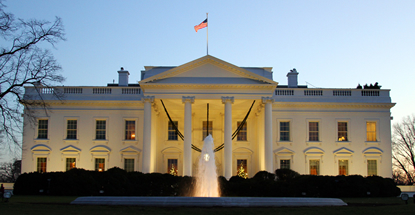The White House today officially backed a popular online petition asking the U.S. Library of Congress to reverse its position on third-party phone unlocking. Third-party unlocking of smartphones became illegal in the U.S. in January when the Library of Congress, which has the responsibility of reviewing the Digital Millennium Copyright Act every three years, chose not to renew the exemption for unlocking phones.
 The ban left many smartphone owners angry, and the online petition to reverse the ban collected 114,322 electronic signatures before being submitted. The petition has finally received an official response from R. David Edelman, White House Senior Advisor for Internet, Innovation and Privacy.
The ban left many smartphone owners angry, and the online petition to reverse the ban collected 114,322 electronic signatures before being submitted. The petition has finally received an official response from R. David Edelman, White House Senior Advisor for Internet, Innovation and Privacy.
In a post on the White House’s “We The People” blog, Edelman wrote that the administration agrees with those who signed the petition, and will support any legislation that would resolve the issue. The main points of the response are below:
“The White House agrees with the 114,000+ of you who believe that consumers should be able to unlock their cell phones without risking criminal or other penalties. In fact, we believe the same principle should also apply to tablets, which are increasingly similar to smart phones. And if you have paid for your mobile device, and aren’t bound by a service agreement or other obligation, you should be able to use it on another network. It’s common sense, crucial for protecting consumer choice, and important for ensuring we continue to have the vibrant, competitive wireless market that delivers innovative products and solid service to meet consumers’ needs.
“This is particularly important for secondhand or other mobile devices that you might buy or receive as a gift, and want to activate on the wireless network that meets your needs — even if it isn’t the one on which the device was first activated. All consumers deserve that flexibility.
“The White House’s position detailed in this response builds on some critical thinking done by the President’s chief advisory Agency on these matters: the Department of Commerce’s National Telecommunications and Information Administration (NTIA).
“Contrary to the NTIA’s recommendation, the Librarian of Congress ruled that phones purchased after January of this year would no longer be exempted from the DMCA. The law gives the Librarian the authority to establish or eliminate exceptions — and we respect that process. But it is also worth noting the statement the Library of Congress released today on the broader public policy concerns of the issue. Clearly the White House and Library of Congress agree that the DMCA exception process is a rigid and imperfect fit for this telecommunications issue, and we want to ensure this particular challenge for mobile competition is solved.
“The Obama Administration would support a range of approaches to addressing this issue, including narrow legislative fixes in the telecommunications space that make it clear: neither criminal law nor technological locks should prevent consumers from switching carriers when they are no longer bound by a service agreement or other obligation.
“We also believe the Federal Communications Commission (FCC) …has an important role to play here. FCC Chairman Genachowski today voiced his concern about mobile phone unlocking (.pdf), and to complement his efforts, NTIA will be formally engaging with the FCC as it addresses this urgent issue.
“Finally, we would encourage mobile providers to consider what steps they as businesses can take to ensure that their customers can fully reap the benefits and features they expect when purchasing their devices.”
Just one day after the White House endorsement, several lawmakers also voiced support for legislation to legalize the process. But, like anything that has to go through Congress, it’s unlikely to be a quick process, so for now, know that you may well be breaking the law if you intend to break your carriers rules and unlock your device.




